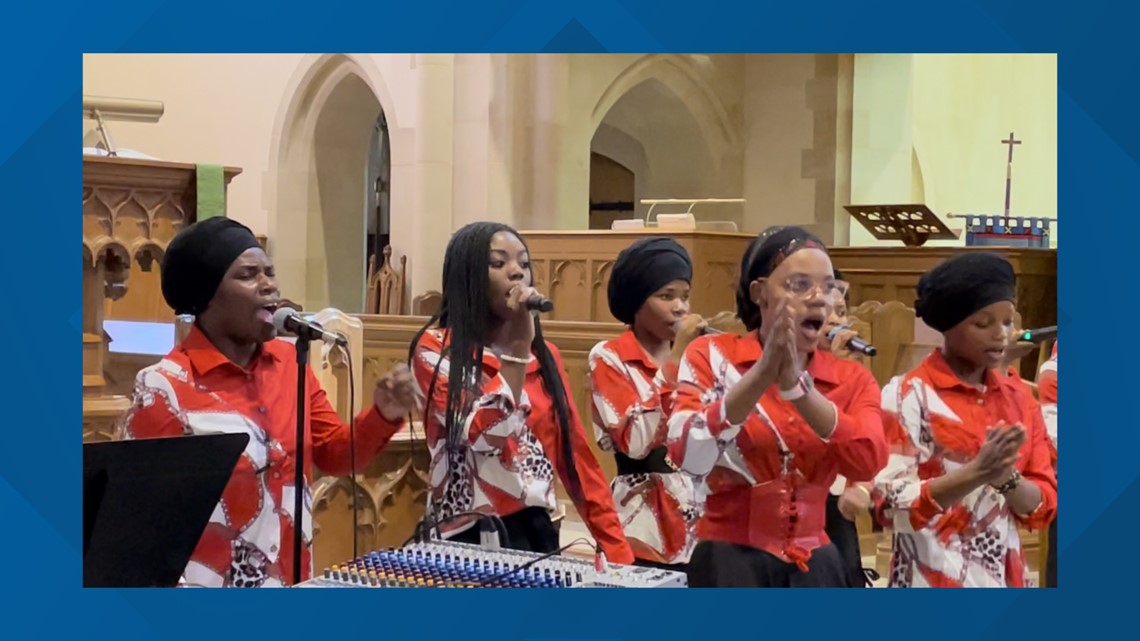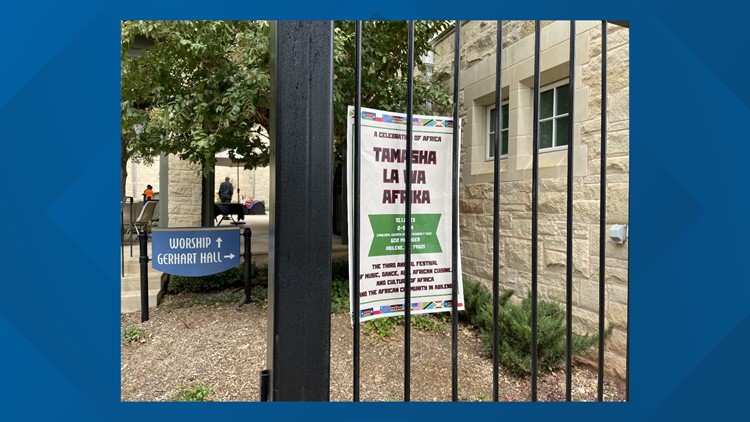ABILENE, Texas — Singers wearing red and white shirts with long black skirts stood at the front of the alter of Episcopal Church of the Heavenly Rest in Abilene Oct. 1.
The all-women performing group, known as the Alleluia Choir, sang Swahili praise songs as church-goers stood and waved their hands in the air.


This performance was part of the third annual Tamasha la wa Afrika, or Celebration of Africa, festival, organized to help keep East African culture alive in the Big Country.
"So about 10 years ago, our Swahili speaking congregation at this church started with two families from the Democratic Republic of the Congo and since then it has grown to over 150 people," church rector David Romanik said. "We realized that one of the things we wanted to do was celebrate the presence of that community in this parish but also in Abilene proper and so we had a wonderful time together, we did a concert...and we like it so much that we decided to do it again and it's just grown since then."
According to Romanik, Abilene's refugee community is made up mostly of families from the DRC with some others from Kenya, Burundi, Uganda and surrounding countries.
The event serves as a space for cuisine, chorus and culture.
After the choir performed for the congregation, traditional East African foods, including a sweet bread called Mandazi, were served along with fruits and fish heads.


A cultural demonstration also took place where refugee women showed a depiction of what their lives were like in their home countries.
"They're sharing what they remember and there's something really powerful about that," Romanik said. "This desire to impart where we've been and what was important to us to this new generation as they try to make their way in America and they try to understand what it means to be East Africans in West Texas."
Not only can refugees appreciate their culture, but so can their children, many of which were born in the United States and speak both English and Swahili.
Romanik himself has learned to speak Swahili, strengthening the relationship between himself and many of the church members by creating a sense of understanding.
"It's a real joy to see how much this community has grown and how Heavenly Rest has really become a center of East African culture here in Abilene and I think people are really proud of that...," he said.
Going forward, Romanik hopes to see this tradition grow alongside the church.



